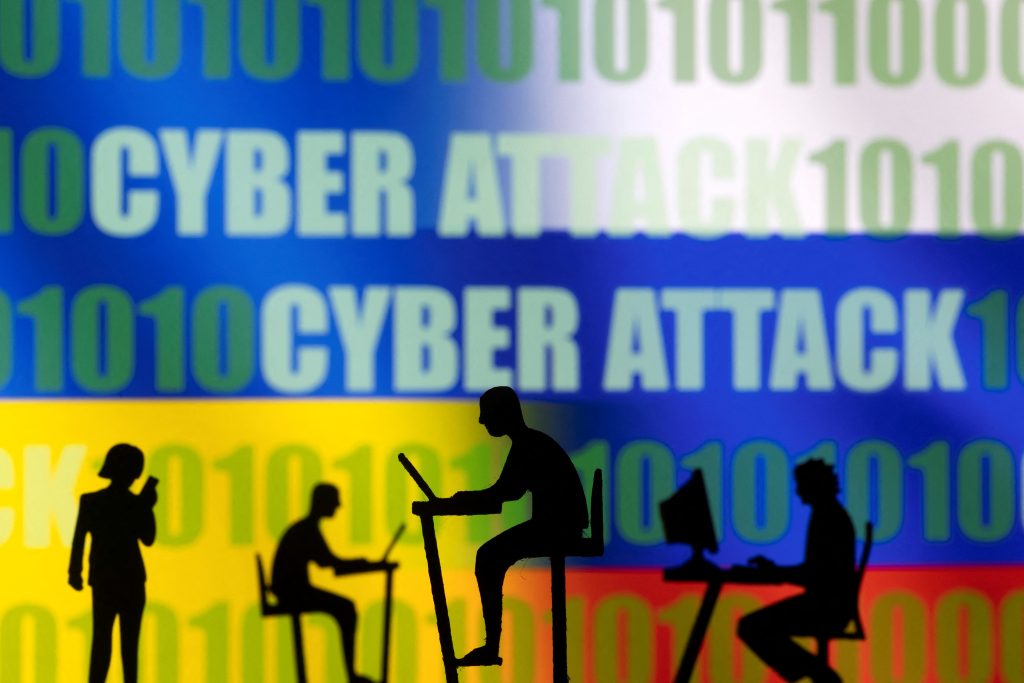A recent cyber attack on Ukraine’s largest telecommunications provider, Kyivstar, caused temporary chaos among subscribers and thrust the cyber front of Russia’s ongoing invasion back into the spotlight. Kyivstar CEO Oleksandr Komarov described the December 12 hack as “the biggest cyber attack on telco infrastructure in the world,” underlining the scale of the incident.
This was not the first cyber attack targeting Kyivstar since Russia launched its full-scale invasion in February 2022. The telecommunications company claims to have repelled around 500 attacks over the past twenty-one months. However, this latest incident was by far the most significant.
Kyivstar currently serves roughly 24 million Ukrainian mobile subscribers and another million home internet customers. This huge client base was temporarily cut off by the attack, which also had a knock-on impact on a range of businesses including banks. For example, around 30% of PrivatBank’s cashless terminals ceased functioning during the attack. Ukraine’s air raid warning system was similarly disrupted, with alarms failing in several cities.
Kyivstar CEO Komarov told Bloomberg that the probability Russian entities were behind the attack was “close to 100%.” While definitive evidence has not yet emerged, a group called Solntsepyok claimed responsibility for the attack, posting screenshots that purportedly showed the hackers breaching Kyivstar’s digital infrastructure. Ukraine’s state cyber security agency, known by the acronym SSSCIP, has identified Solntsepyok as a front for Russia’s GRU military intelligence agency.
Stay updated
As the world watches the Russian invasion of Ukraine unfold, UkraineAlert delivers the best Atlantic Council expert insight and analysis on Ukraine twice a week directly to your inbox.
The details of the attack are still being investigated but initial findings indicate that hackers were able to breach Kyivstar security via an employee account at the telecommunications company. This highlights the human factor in cyber security, which on this occasion appears to have enabled what Britain’s Ministry of Defense termed as “one of the highest-impact disruptive cyber attacks on Ukrainian networks since the start of Russia’s full-scale invasion.”
This latest cyber attack is a reminder of the threat posed by Russia in cyberspace. Ever since a landmark 2007 cyber attack on Estonia, Russia has been recognized as one of the world’s leading pioneers in the field of cyber warfare. The Kremlin has been accused of using both state security agencies and non-state actors in its cyber operations in order to create ambiguity and a degree of plausible deniability.
While cyber attacks have been a feature of Russian aggression against Ukraine since hostilities first began in 2014, the cyber front of the confrontation has been comparatively quiet following the launch of the full-scale invasion almost two years ago. Some experts are now warning that the recent attack on the Kyivstar network may signal an intensification of Russian cyber activities, and are predicting increased cyber attacks on key infrastructure targets in the coming months as the Kremlin seeks to make the winter season as uncomfortable as possible for Ukraine’s civilian population.
Eurasia Center events

Ukraine’s cyber defense capabilities were already rated as robust before Russia’s full-scale invasion. These capabilities have improved considerably since February 2022, not least thanks to a rapid expansion in international cooperation between Ukraine and leading global tech companies. “Ukraine’s cyber defense offers an innovative template for other countries’ security efforts against a dangerous enemy,” the Financial Times reported in July 2023. “Constant vigilance has been paired with unprecedented partnerships with US and European private sector groups, from Microsoft and Cisco’s Talos to smaller firms like Dragos, which take on contracts to protect Ukraine in order to gain a close-up view of Russian cyber tradecraft. Amazon Web Services has sent in suitcase-sized back-up drives. Cloudfare has provided its protective service, Project Galileo. Google Project Shield has helped fend off cyber intrusions.”
As Ukraine’s cyber defenses grow more sophisticated, Russia is also constantly innovating. Ukrainian cyber security officials recently reported the use of new and more complex malware to target state, private sector, and financial institutions. Accelerating digitalization trends evident throughout Ukrainian society in recent years leave the country highly vulnerable to further cyber attacks.
There are also some indications that Ukrainian cyber security bodies may require reform. In November 2023, two senior officials were dismissed from leadership positions at the SSSCIP amid a probe into alleged embezzlement at the agency. Suggestions of corruption within Ukraine’s cyber security infrastructure are particularly damaging at a time when Kyiv needs to convince the international community that it remains a reliable partner in the fight against Russian cyber warfare.
The Kyivstar attack is a reminder that the Russian invasion of Ukraine is not only a matter of tanks, missiles, and occupying armies. In the immediate aftermath of the recent attack on the country’s telecommunications network, Ukrainian Nobel Peace Prize winner and human rights activist Oleksandra Matviichuk posted that the incident was “a good illustration of how much we all depend on the internet, and how easy it is to destroy this whole system.” Few would bet against further such attacks in the coming months.
Mercedes Sapuppo is a program assistant at the Atlantic Council’s Eurasia Center.
Further reading
The views expressed in UkraineAlert are solely those of the authors and do not necessarily reflect the views of the Atlantic Council, its staff, or its supporters.

The Eurasia Center’s mission is to enhance transatlantic cooperation in promoting stability, democratic values and prosperity in Eurasia, from Eastern Europe and Turkey in the West to the Caucasus, Russia and Central Asia in the East.
Follow us on social media
and support our work
Image: (REUTERS/Dado Ruvic/Illustration)




